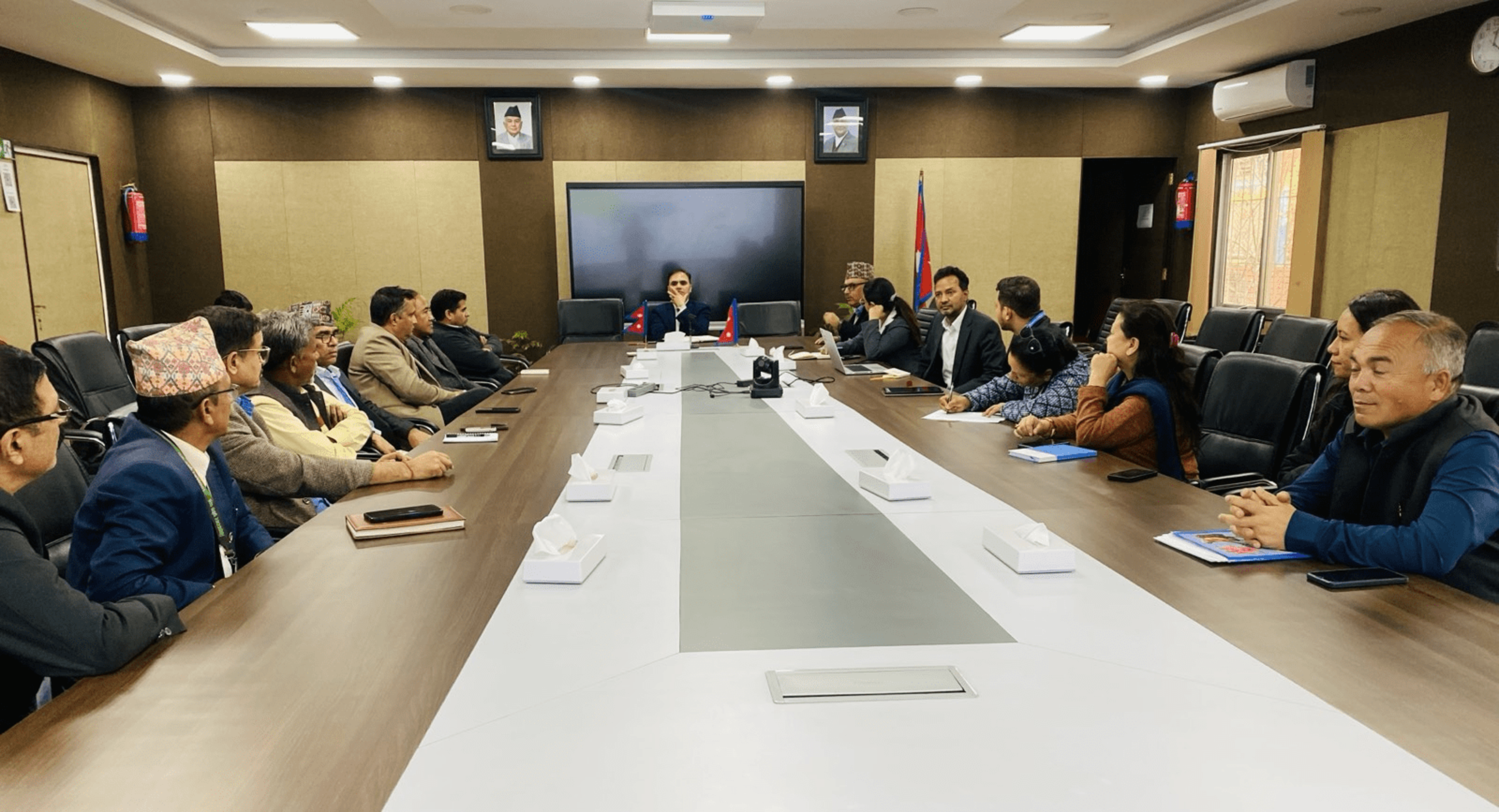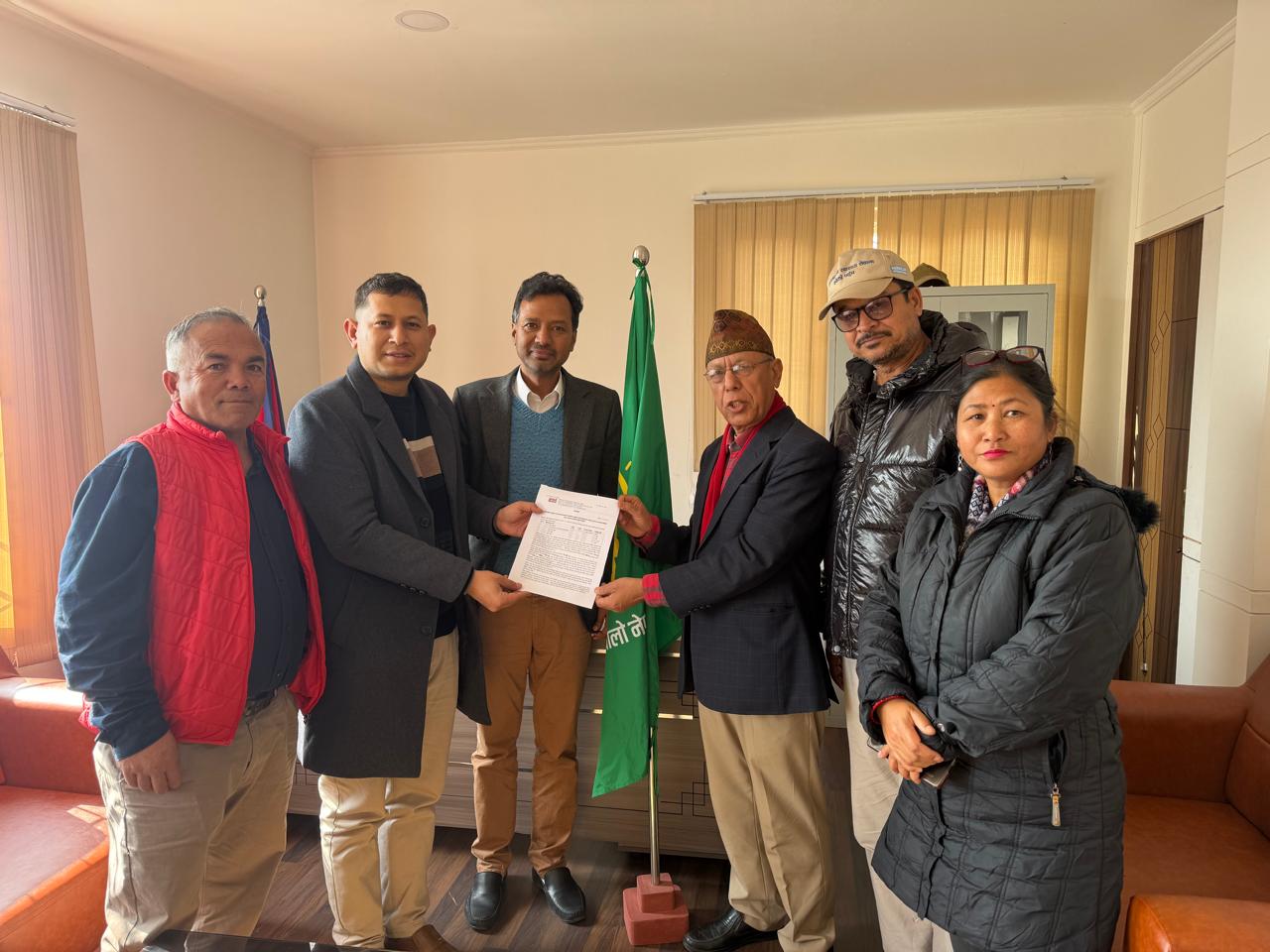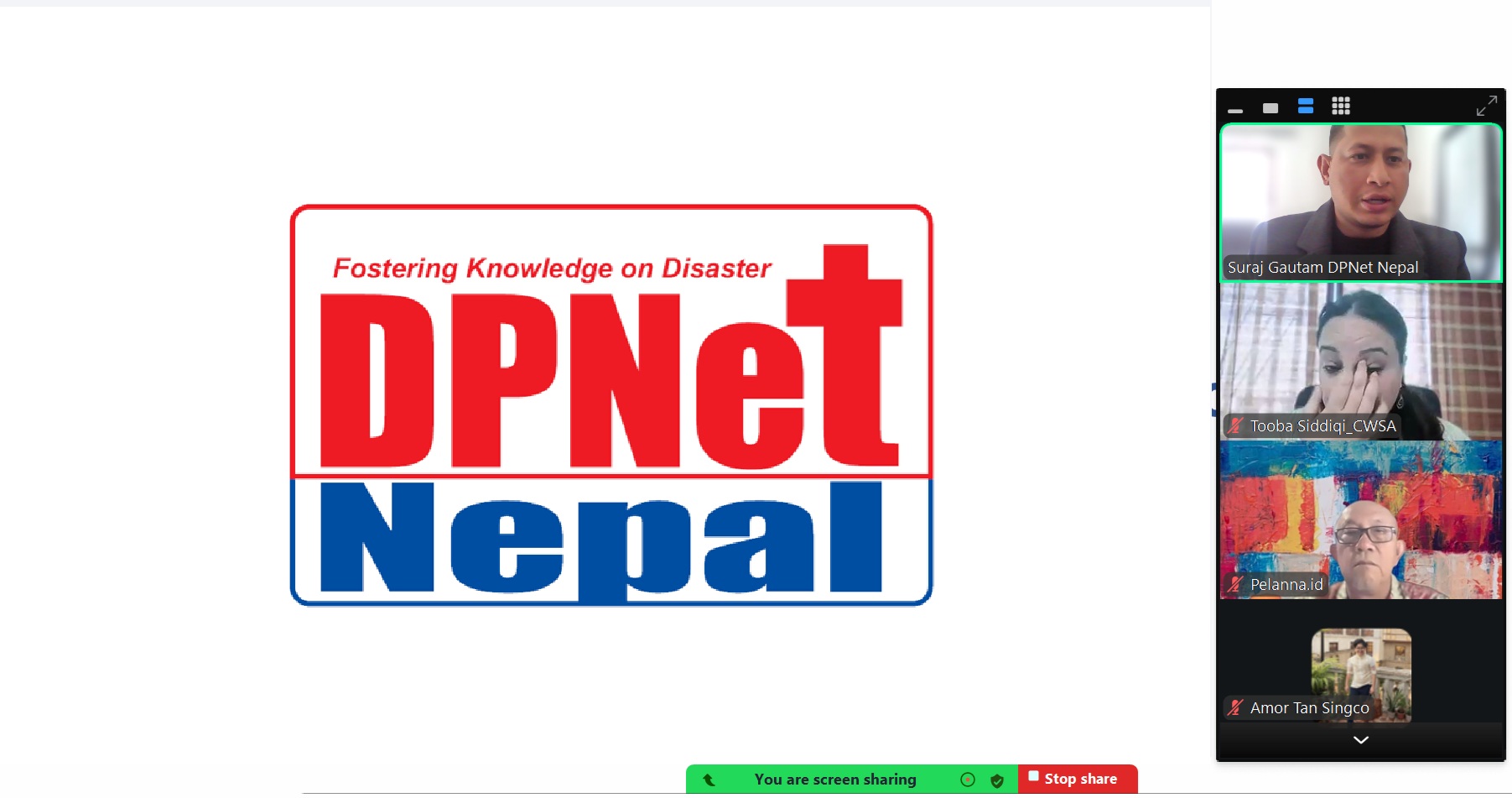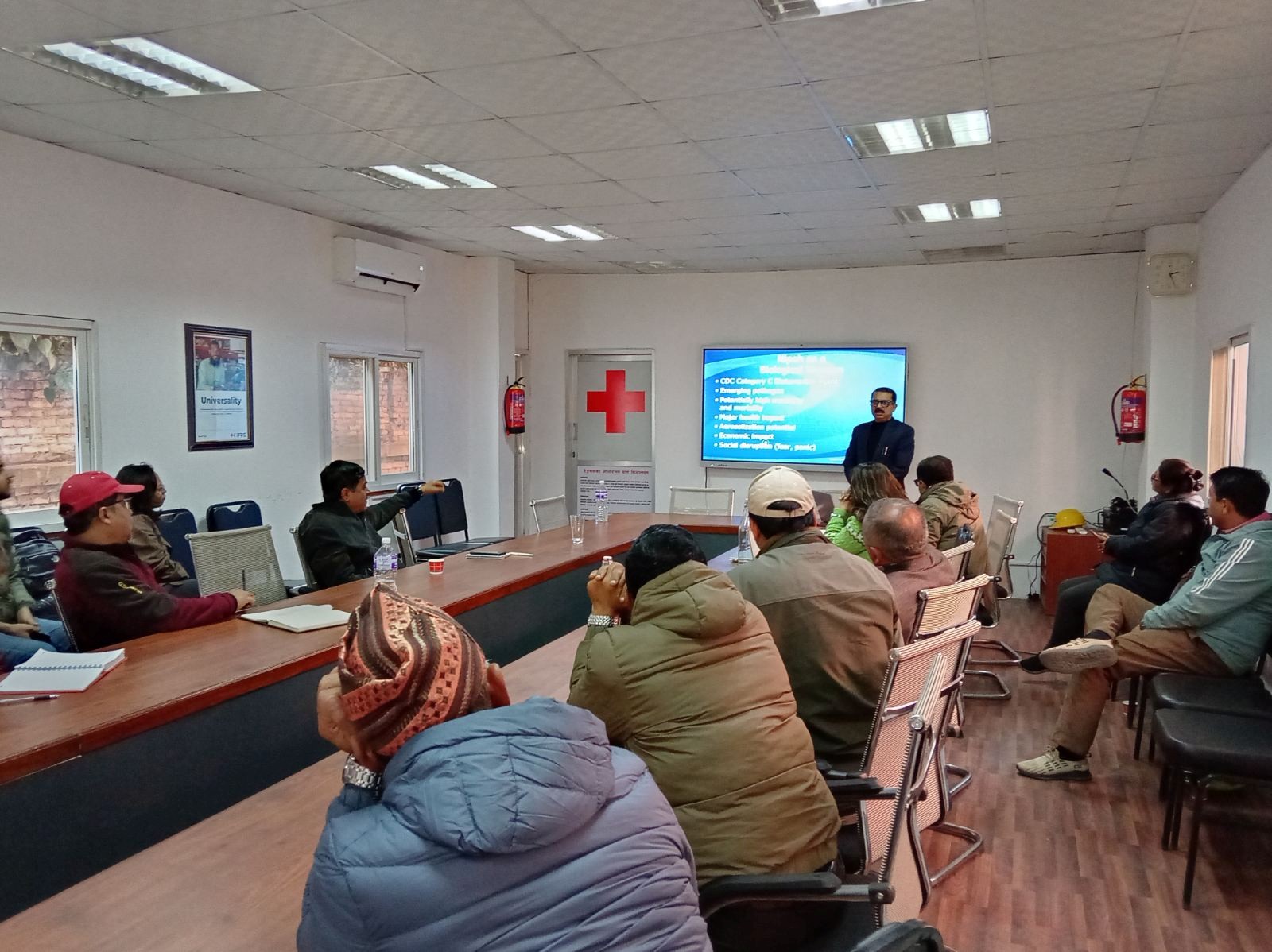NPDRR Stakeholders Meeting Held

February 25, 2025 – The National Platform for Disaster Risk Reduction (NPDRR) held its stakeholders’ meeting at the National Disaster Risk Reduction and Management Authority (NDRRMA). The meeting, chaired by NPDRR Chairperson and Executive Chief of NDRRMA, Dr. Bhisma Bhusal, focused on strengthening the platform’s thematic groups and enhancing their effectiveness in disaster risk reduction. Dr. Raju Thapa, Member Secretary of NPDRR, presented updates on the platform’s progress and outlined key agenda items for discussion.
The meeting emphasized the importance of making NPDRR’s thematic groups more structured and efficient. After an intensive discussion, it was decided that each thematic group would convene within 15 days to finalize their respective ad-hoc groups. The objective is to enhance the responsiveness and proactive engagement of thematic groups in strengthening Nepal’s disaster resilience.
A key decision of the meeting was the participation of thematic groups in the disaster podcast series, "Bipad Ka Kura," currently being broadcast by NDRRMA. Each thematic group will take turns contributing to the podcast, sharing insights, experiences, and expertise in disaster risk reduction. The initiative is expected to play a vital role in raising public awareness and encouraging community participation in disaster preparedness and response.
Another major agenda discussed was Nepal’s preparation for the Global Platform for Disaster Risk Reduction (GPDRR) 2025, which is set to be held in Geneva in June 2025. The thematic groups were assigned the task of compiling best practices and submitting them within a month to NDRRMA. This step aims to ensure that Nepal is well-prepared to showcase its achievements and lessons learned in disaster risk reduction at the global level. The meeting highlighted the importance of presenting a well-documented strategy to effectively represent Nepal’s disaster resilience efforts on the international stage.
The meeting also discussed the ongoing reconstruction and rehabilitation process following the recent Western Nepal earthquake and monsoon-induced disasters. All thematic groups agreed to develop an action plan outlining their contributions to the recovery efforts. This action plan will be presented in the next meeting to ensure a coordinated approach toward rebuilding and resilience-building initiatives.
The stakeholders reaffirmed their commitment to enhancing collaboration, sharing knowledge, and working collectively to improve disaster risk reduction efforts in Nepal. The meeting concluded with a strong emphasis on continued cooperation between thematic groups, technical experts, and policymakers to build a more resilient disaster management coordination and collaboration for the country.











